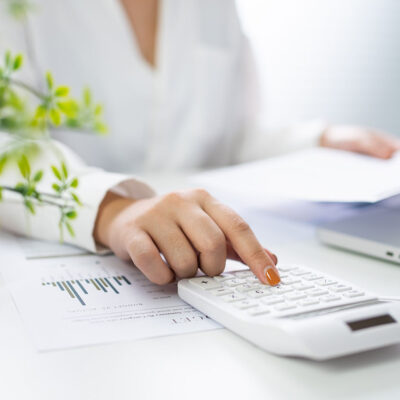As the tax filing deadline draws near, fingers crossed you’ll be receiving a refund. But what to do with the money back? There are lots of options out there from spending it on a vacation to saving it for retirement.
Here are three ideas from Carol Haayema, CFP®, CKA®, Senior Financial Advisor with Christian Credit Union, on what she advises members to do with their refunds.
Re-frame it
A good place to start is how you think about your refund. It’s really a return of your own money. In a perfect world, all of your finances and accounts would be in order and you wouldn’t pay extra tax, so no refund required! Except for cases where your refund is from donations to charity, there are ways to avoid paying more up-front.
For example, often people receive a refund because they contribute to their Register Retirement Savings Plan or RRSP. But if you have the option, you’re better off to contribute to an RRSP through an employer group plan than on your own. Why? That way you get the tax refund you used to get at the end of year on every pay cheque. Your employer will take the RRSP contribution off your gross pay (before tax) and then tax you on the rest. This means you pay less tax upfront rather than getting a lump sum back at the end of the year. You can use your refund money right away.
If you work for an employer that does not offer a group plan, you may still have RRSP contributions taken immediately off your pay cheque. Look into the T1213 form to see the guidelines for when this applies.
Pay down debt
Paying down personal debt is a win for many reasons. When you owe money, it makes each paycheque smaller because you have less to spend on living due to money already owed. Another problem with most debt is that you must pay it with after-tax dollars. That means you have earn more in order to have enough money left to pay the debt after taxes are taken.
Start with high-interest debt like credit cards, loans and lines of credit before worrying about your mortgage. If you do want to make a lump sum mortgage payment, be sure to check with your lender to see if there are any restrictions or penalties.
Invest it (but only if you’re debt free)
Many people would advise that when you receive a sum of money, it’s best to look at where you’d get the highest rate of return and put it there. For example, if you invest your tax refund you may earn money on the market that you’d miss out on if you use it to pay down your house. But this thinking assumes that nothing will happen in future that could impact your ability to work. Many Canadian retirees are forced to retire earlier than planned, so if this happens to you, will you be prepared?
For many, the best place to be is debt-free. The greatest tool to build wealth is income, so the faster you can pay down your debt, the faster you can get that money working for you and do with it what you want from saving to giving back.
Bonus tip: what if you owe?
If you receive a tax bill and have some savings set aside, now is the time to use them to pay what you owe. The CRA has a punitive interest rate if you don’t pay your taxes on time, so you’re better off to pay taxes owed right away and rebuild your savings.
If you have no other choice but to make payments, call the CRA to speak to a representative as soon as possible to set up a payment plan. And do everything in your power to pay what you owe in full as quickly as possible. Get creative – for example, sell items around the house you no longer use, have a garage sale, do some odd jobs for cash – and do whatever you can to pay off the tax debt.
Need help?
Have a refund coming in and don’t know where to begin? Book an appointment with a professional at your local credit union. Credit Unions are owned by their members and always provide advice that puts your needs and where you’re at before profits.
Whether you have a tax refund coming in or you’re looking at a tax bill and need advice, find your local credit union today for access to all the same products and services as the big banks but with award-winning customer service, money back in your pocket every year through profit-sharing and a huge network of surcharge-free ATMs across Alberta.
The tips in this writing are generic in nature and do not constitute specific advice to specific situations. You should consult a professional regarding your specific situation.
